The 57th China Economic Observation (CEO) themed interpreting the changing global economic landscape and the outlook for China’s economy was held at the Beiling Lecture Hall of Peking University Science Park on the evening of June 19, 2021. A number of experts and scholars attended the event, during which they shared their ideas on investor sentiment, real estate, bulk commodities and US economy, and conducted in-depth exchanges and discussions on the questions raised by the audience.
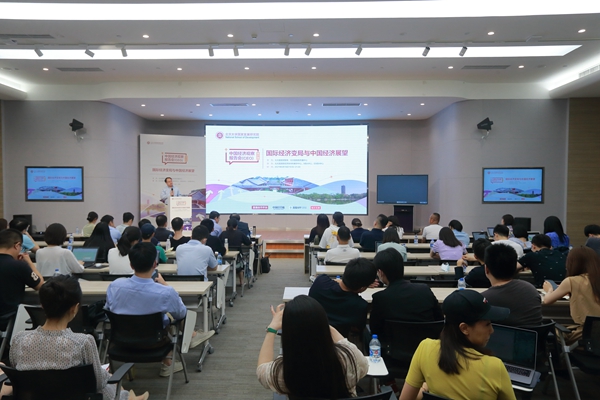
The first guest speaker was Shen Yan, Professor of Economics at the National School of Development of Peking University (NSD), Deputy Director of the Institute of Digital Finance at PKU, and Deputy Director of MOE-PKU Center for Human Capital and National Policy, followed by Xu Gao, Chief Economist and Assistant President of the Bank of China International Co. Ltd. and an adjunct professor of the NSD, Liang Zhonghua, Chief Macro Analyst from Haitong Securities, Wei Zhichao, Chief Economist of Capital Securities, and Lu Feng, Sinar Mas Chair Professor of Economics from the NSD.
Professor Huang Zhuo
The event was hosted by Huang Zhuo, Assistant Dean and Associate Professor in Economics (with tenure) of the NSD, Fa-Shu Endowed Scholar, Deputy Director of the Institute of Digital Finance at PKU.
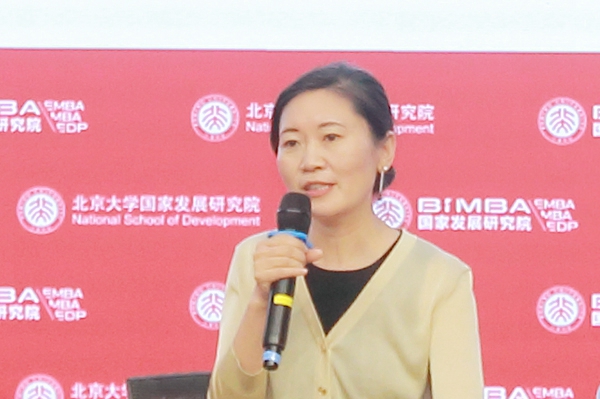
Professor Shen Yan
Professor Shen Yan was the first speaker. She released and interpreted the “investor sentiment in the post-epidemic era”, saying that most investors hold positive attitudes towards China’s economic outlook. She pointed out that the sentiment premium is even greater for companies with low liquidity, high volatility, high turnover, and high-profile companies, but the sentiment premium for small stocks has weakened. According to her introduction, the sentiment of GEM investors is more optimistic and consumers continue to be optimistic about industries such as leisure services, household appliances, and real estate; the consumer-style investors’ sentiment is relatively high.
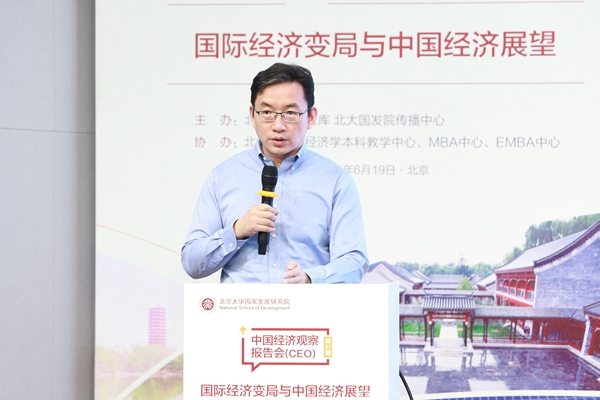
Xu Gao
Xu Gao’s speech focused on “the pandemic and theories on paper money and modern currency”. He pointed out that after the outbreak of COVID-19, the large-scale transfer payment adopted by the US government contributed to the increase in household income. The demand in the US rebounded faster than China, but China saw supply expanding at a faster pace, which led to reinforced global cycle of “Chinese production-US consumption”. The prices of made-in-China goods were pushed up, together with shipping container shortage and production restriction worsened inflation pressure. Due to all these factors, US fiscal stimulus package may be changed.
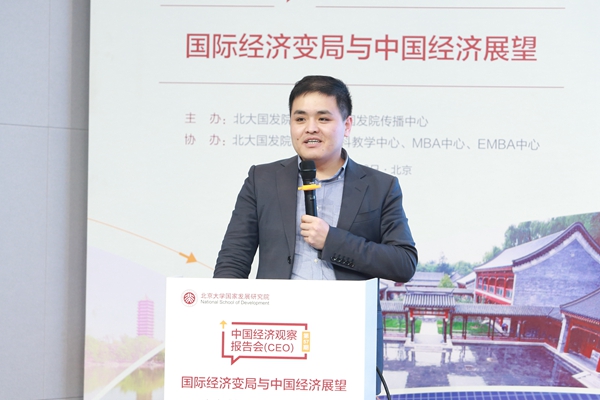
Liang Zhonghua
Liang Zhonghua delivered a keynote speech around the theme of “currency ebbs”. He attributed yuan’s appreciation to weakening US dollar, a sign indicating that yuan’s exchange rate has been left to be determined more by buying and selling forces in the foreign exchange market. He held that the US dollar could keep weakening thanks to the slow vaccination progress. Meanwhile, COVID vaccine rollout is rapidly gathering pace across Europe, and the US and Europe have signaled widening interest-rate gap. Worries that global inflationary pressures is looming have been fueled, especially in the US, and monetary tightening should be put in place as soon as possible.
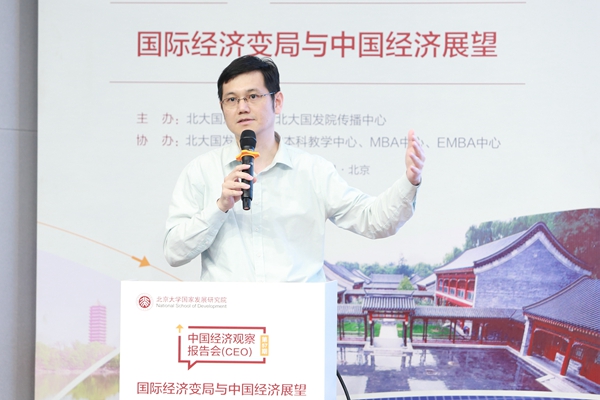
Wei Zhichao
Wei Zhichao gave answers to the causes underlying the soaring housing prices from multiple perspectives. He said the prominent feature since 2020 was that first tier cities saw more growth in housing prices than lower tier cities, especially in Shenzhen and Shanghai that saw a faster increase in home prices, and the house prices in elite school districts was skyrocketing. The most significant cause seems to be the larger gains from the bull market in 2020. He found a positive correlation between the number of high-income shareholders in major cities and the home prices there.
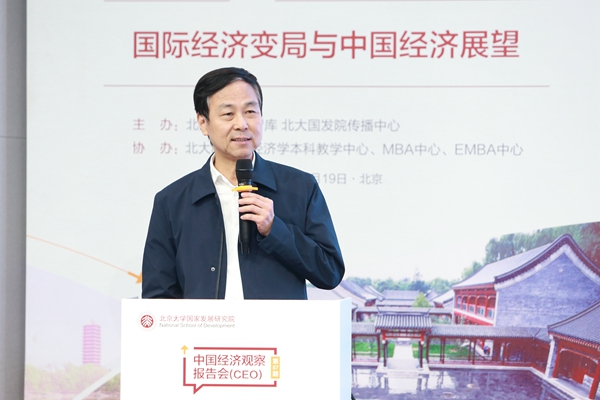
Professor Lu Feng
Professor Lu Feng gave an in-depth interpretation into the topic “a fresh fiscal stimulus and new thinking on fiscal decision-making.” He pointed out that at a time when the US fiscal system is undergoing a radical transformation, the fiscal response is 5-6 times larger than that in 2008 or 2009, and new stimulus package is underway. According to the new thinking on fiscal decision-making, strengthening fiscal macro-intervention, reducing debt ratio and focusing on debt servicing ratio shall be practiced. It enjoys many positive influences, but still has negative effects we need to take into account.
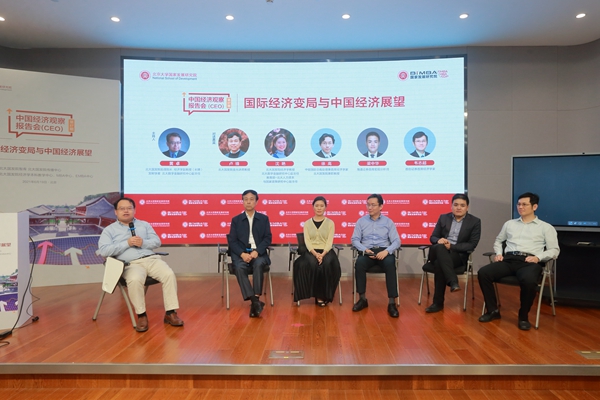
Q&A session
In the final round-table discussion session, five guest speakers answered questions raised by the audience, such as the time node of the US to implement the packages of reducing monetary stimulus, the influence caused by the excess supply of the currencies of the US and other countries on China, and inflation expectations throughout the year. Audience’s engagement was active and the speakers gave their comments in an easy-to-understand way.
The 57th CEO was co-sponsored by the Think Tank and the communication center of the NSD, and co-organized by Economics Undergraduate Teaching Center, MBA Center, and EMBA Center. Meanwhile, the event was livestreamed on a series of platforms including Baidu, China Business Journal, Haojing Live, and the NSD’s office accounts on live streaming platforms.
About China Economic Observation
China Economic Observation (CEO) is launched by the NSD in 2005. Leveraging the abound resources of scholars and experts from the NSD and all walks of life, the seminar provides a forum for discussions on the hot topics of reform, current macroeconomic situation, supply and demand of commodities and their prices, systems and policies related to the investment environment, and other issues and trends to strengthen the ties between the NSD and all circles of the society and to promote attention and discussions on China’s economic development in the academia.